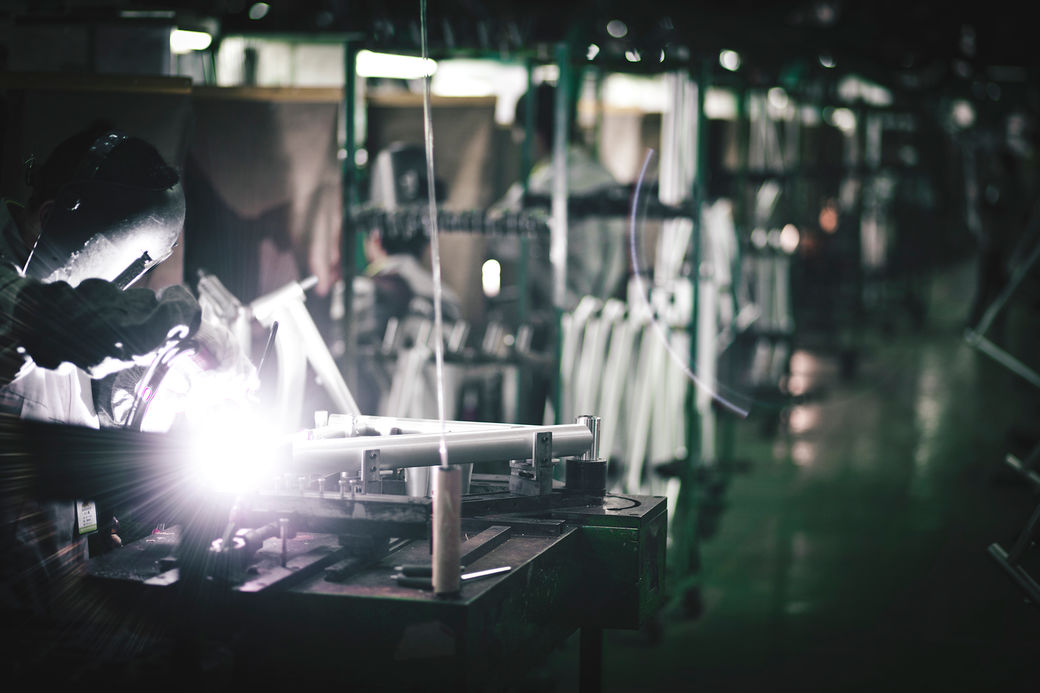CARBON TECHNOLOGY
STATE OF THE ART TECHNOLOGY

MERIDA’s philosophy is that you should work with industry experts when they can do something better than you. This is definitely true when looking at carbon production. We collaborate with the best producers to ensure we are always at the leading edge of technology. Our partners are constantly developing highly refined production techniques for other industries, meaning that we can select the best manufacturer to satisfy the varying needs of each frame we develop.
CARBON PRODUCTION IS VERY COMPLEX
Marketing has created a mystique around carbon frame quality; labels such as high tensile, high modulus, super high modulus and ultra-high modulus dominate the market. These terms relate to carbon’s properties, not its quality. Toho or Torray are sometimes mentioned to add perceived credibility. Some brands say all carbon is the same, or that they use only ultra-high modulus fibres. In reality, high performance carbon frames must incorporate many different fibre types, each carefully positioned to achieve the right technical properties. For example, our SCULTURA frame weighs 850 g (size M/L), comprises 400 individual carbon sections, it takes over 45 hours to build.
CARBON IS DEFINITELY NOT ALL THE SAME
Visually identical frames can vary in quality due to the level and mix of carbon fibres used. MERIDA uses a CF number to demonstrate the performance level; 2 is the lowest, 5 the highest. Subtle tweaks to the carbon fibres used both save weight and improve performance.
ALUMINIUM TECHNOLOGY
CUTTING EDGE ALUMINIUM FRAMES

DOUBLE AND TRIPLE BUTTING
Double butting describes tubes with two wall thicknesses; thicker at the ends and thinner in the middle. Triple butting describes tubes with three different wall thicknesses along their length, optimising strength where it is needed but minimising weight in areas subjected to less stress. All our aluminium is heat treated. Frames are heated to very high temperatures (a T6 temper) then quickly cooled in water or oil to ensure the alloying elements don’t precipitate. Frames are subsequently heated to a lower temperature, artificially ageing and significantly strengthening them.
HYDRO AND TECHNOFORMING
Hydroforming involves the insertion of tubes into negative moulds. A hot emulsion of water and oil is forced through at pressure, enabling them to be formed into complex shapes. Technoforming is a mechanical forming process, shaping the tubes by using negative moulds, at times combined with an internal metal core. Smooth welding, also known as double pass welding, refers to a second pass over the weld providing a clean organic look to the frame; at first glance, you will be convinced it is carbon, not aluminium.
E-BIKE AND FRAME TECHNOLOGIES
LIFETIME FRAME WARRANTY
For peace of mind and reassurance, all MERIDA frames come with a lifetime warranty against manufacturing defects. Restricted to the original purchaser of the bike on production of proof of purchase (frames from model year 2015 onwards). *Conditions apply. * The lifespan of a bike is up to ten years. The “intended use” (see instruction manual) has to be noted.

